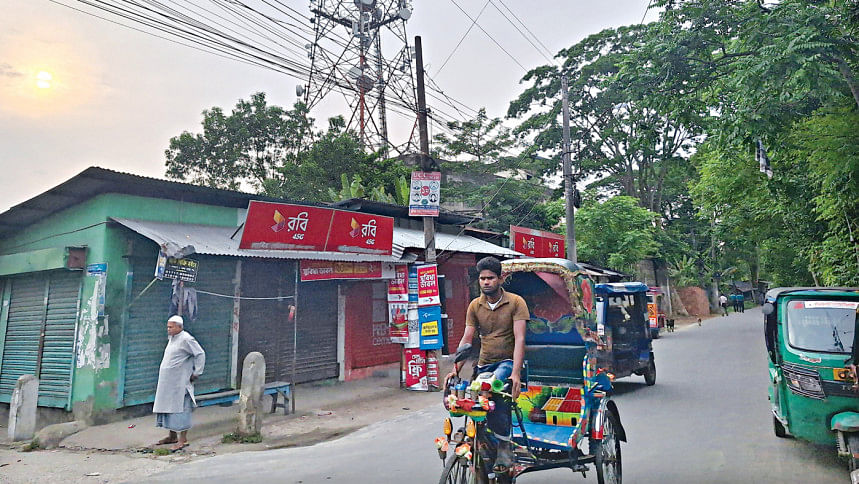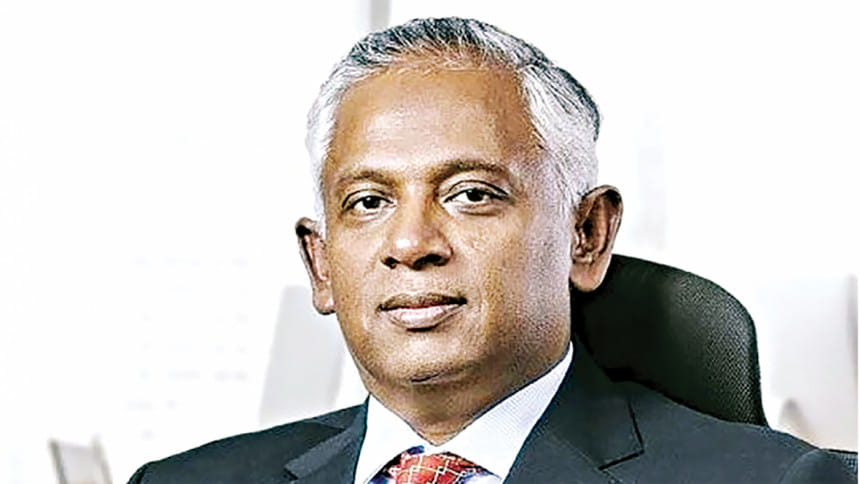Telecom reforms for a smarter future

Bangladesh's digital infrastructure services -- towers, fibre networks, submarine cables and data centres -- have all the potential but sadly, it is buried under layers of mismanagement and corruption. A few players hold monopolistic control, which seems to do wonders for their wallets, but not so much for national interests or digital progress. With mobile penetration still under 60 percent and fixed-line broadband crawling at a snail's pace, it is no surprise foreign investors are thinking twice.
There is a massive FDI opportunity here -- if only policies weren't written by those too busy protecting political interests. Fixing this mess could bring balanced growth, jobs, and financial inclusion. If we truly want "Digital Bangladesh," it is time to eliminate the cronyism, encourage competition and let innovation flourish.
TOWER POLICY OVERHAUL
Bangladesh's tower policy is stifling the growth of its telecom sector. Out of the country's 45,000 towers, only 22,000 are managed by tower companies, with Edotco holding the lion's share. Mobile network operators (MNOs) often hoard their towers, benefiting from current policies while neglecting industry-wide collaboration. This reluctance to share towers limits infrastructure efficiency. Globally, tower companies typically have much higher sharing ratios than MNOs, emphasising the need for policy reform.
To address these issues, the following recommendations should be considered.
Mandatory site sharing: MNOs must be required to share sites within a stipulated timeframe. Large MNOs often refuse to share strategic locations, forcing smaller operators to build redundant infrastructure. This not only wastes national resources but also increases operational costs.
Prioritise tower companies (TowerCos): Policy revisions should empower TowerCos to manage infrastructure. If a TowerCo fails to deliver a site within a specified timeframe, MNOs should be allowed to build towers, but these must eventually be transferred to the TowerCo. Countries like Indonesia (tenancy ratio of 1.65x) and Myanmar (1.72x) outperform Bangladesh (1.28x). Prioritising TowerCos would help achieve economies of scale and enable MNOs to focus on advanced technologies like 5G.
Streamline tower construction: Regulatory hurdles delay tower construction by 6 to 12 months, and border areas can take years. These delays waste resources and slow customer service improvements. Simplifying the approval process would accelerate development and reduce inefficiencies caused by regulatory bottlenecks.
Maximise active and passive sharing: Incentivising the sharing of active (RAN) and passive (tower, fibre) infrastructure would reduce unnecessary investment, save foreign currency, and prevent unhealthy competition. Active RAN sharing should be promoted to ensure efficient use of resources.
These challenges directly impact telecom service quality, and without immediate reform, the industry will continue to fall short of expectations. The recent decision by KKR-backed Pinnacle to halt a $300 million tower investment due to regulatory risks and American Tower's inactivity underscores the urgency for policy change.
Reforming Bangladesh's tower policy could attract up to $1.5 billion in foreign direct investment (FDI) over the next two years. Selling MNO-owned towers to TowerCos would generate capital gains tax, boost national income, and improve shareholder returns, providing a much-needed stimulus to the capital market. As 4G and 5G technologies advance, dependency on tower infrastructure will only increase, making policy reform essential for future growth.

FIBRE: THE LIFELINE OF TELECOM
Bangladesh's telecom infrastructure faces significant challenges due to restrictive policies preventing MNOs and ISPs from laying their own fibreoptic cables, which are critical for digital connectivity. Since 2009, the National Telecommunication Transmission Network (NTTN) operators have controlled fibre rollout, limiting access to dark fibre, essential for building a robust network. This has weakened the transmission network, with 53 percent of overhead fibre being unsuitable for 4G, let alone future 5G. Two private NTTN operators have formed a cartel, refusing to offer dark fibre and proposing unsustainable capacity models instead.
In contrast, countries like India and Malaysia have empowered telecom operators to lay fibre, leading to significant improvements. Large government projects in Bangladesh, such as the Info Sarkar project (19,500 kilometres of fibre), remain underutilised due to a lack of access and poor deals with the above two NTTN operators. The regulators need to review the arrangement and open Info Sarkar for all the MNOs and ISPs. In addition, MNOs and ISPs should be allowed to build their own dark fibre if NTTN operators fail to offer it at reasonable rates. Opening the fibre market to more players will reduce costs, improve service and support Bangladesh's digital transformation goals.
POWER STRUGGLE TO PROGRESS
In Bangladesh, telecom regulation is in disarray due to overlapping responsibilities between the telecom ministry, BTRC, and DOT, causing inefficiencies. Currently, the ministry handles policymaking, despite lacking the expert resources housed within the BTRC. Previously, policy formulation was the BTRC's role, but power struggles and ill intentions shifted it to the ministry. Meanwhile, the BTRC has transitioned from a revenue collector to a telecom development enabler. To fix this, the interim government must merge DOT with the BTRC, enabling the BTRC to both regulate and create policies while the ministry provides guidance. Without such reforms, meaningful progress will remain elusive.
Bangladesh's telecom sector feels like a never-ending game of favouring a few. Monopolies, red tape, and poor policies are slowing down progress. If we truly want a "Digital Bangladesh," it is time to focus on national interests and ensure everyone benefits, not just a select few.
The author is the founder and managing director of BuildCon Consultancies Ltd

 For all latest news, follow The Daily Star's Google News channel.
For all latest news, follow The Daily Star's Google News channel. 



Comments